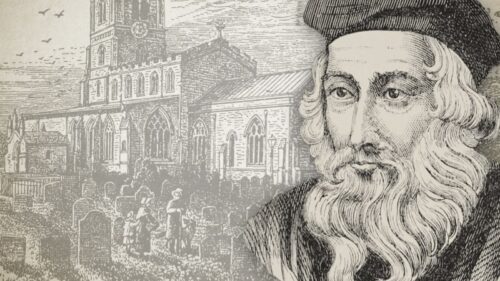-
The Great Ejection (1643-1660)
Having spent most of my life in Free church circles, I learnt very early of the severe persecutions meted out in England during the 17th century to Dissenters, Non-Conformists and Non-Jurors who wished to preach, teach and witness in Anglican parishes. Two books which became of special influence in forming my judgement, the first many years ago and the second in more recent years, were Thomas Coleman’s The Two Thousand Confessors of Sixteen Hundred and Sixty-Two and Edmund Calamy’s The Nonconformist’s Memorial, a three-volumed work on the same period. I still treasure these works which served under God to cause me to abhor any form of religious, political and social persecution. As a result of reading such books as the above, however, I came to…
-
Affirmation 2010: An Attempt To Downgrade Orthodoxy
The Bible League informs us in their ‘www.Affirmation-2010.org’ website of Malcolm Watts’ initiative in drawing up a new para-church creed of that name to win ‘the widest possible agreement’ in ‘various church bodies and constituencies’. A copy of the statement is provided under a separate menu and a form is attached soliciting readers to sign this rather complicated and drawn out Statement of Faith. The names of two dozen subscribers are added which represent a wide area of evangelical witness. We are told that these men ‘are able unitedly to subscribe to the truths of the Word of God as set forth in the Affirmation.’ In a two columned article published in the English Churchman, Issue 7787, 2010, Affirmation 2010 is presented by its sponsors…
-
Affirmation 2010 Deals With Critics
The adverse criticism levelled at Affirmation 2010 in a good number of Christian magazines and digital publications has moved The Bible League Trust (BLT) to over-react with an eight point, five-paged rebuttal claiming that all such criticisms are unfounded, ill-conceived, fallacious, confused and indicate a departure from sound teaching. In their condemnation of honest criticism, they sarcastically denigrate the intelligence, integrity and orthodoxy of their critics. Besides choosing to exonerate themselves by ridiculing those who question their policies, they play down this opposition, claiming that they have only found ‘one or two critiques’. This must be the understatement of the year as their ‘critical responses’ themselves refer to a much larger number of concerned people.
-
The Old Paths versus New Divinity: Exemplified by William Huntington and Andrew Fuller
The work of the Banner of Truth Trust proved a great encouragement in my spiritual development and I became an enthusiastic reader of their magazine from its start. Throughout the following years, especially during the seventies and eighties, I was able to break away from my work in Sweden and Germany to attend those inspiring Leicester Conferences which blessed the soul of so many pastors and teachers and gave them a love for Reformed doctrines and personal holiness. In those early halcyon days of theological unity and brotherly love, we young men believed that we were on the verge of a great revival and a return to the Old Paths of evangelism and soul-care which had become overgrown with the weeds of Liberal theology. We…
-
Wesleymania: (A Brief Look At The Current Wesleymania In Our Reformed Churches)
Most books on John and Charles Wesley refer to his religion of the heart. We thus find Leslie Church entitling his biography of John Wesley Knight of the Burning Heart and Arnold Dallimore presenting Charles Wesley under the title A Heart Set Free. Yet there was far more to John Wesley and the Arminian Methodist movement that he founded than ‘utterances of the heart.’ Both Augustus Toplady[1] and George Eayrs[2], to mention two theological opposites, stress that Wesley was a thinker and philosopher and due attention must be paid to John Wesley’s head, a head which even his brother Charles often noticed, did not always go the way of his heart. Wesley’s liberty to contradict himself This fact, i.e. the contrary utterances of Wesley’s heart…
-
New Covenant Theology: A Critical Evaluation
Several friends have written to me during the last few years to tell me that their views of the Old Testament, of Law and Gospel, of the Covenant of Grace, of the Church and of the Person of Christ have been radically altered by the teaching of Fred Zaspel and John Reisinger. A few have turned judgemental and in their new enthusiasm for this new teaching, they have scolded me for keeping to old Reformed patterns of doctrine, exegesis and hermeneutics and have discontinued fellowship. Such disciples are far stricter than their mentors as both Reisinger and Zaspel invite constructive criticism and have altered, if not corrected, their views openly since the late nineteen-nineties. Indeed, they call their own views ‘elastic’. New Covenant Theology (NCT)…



